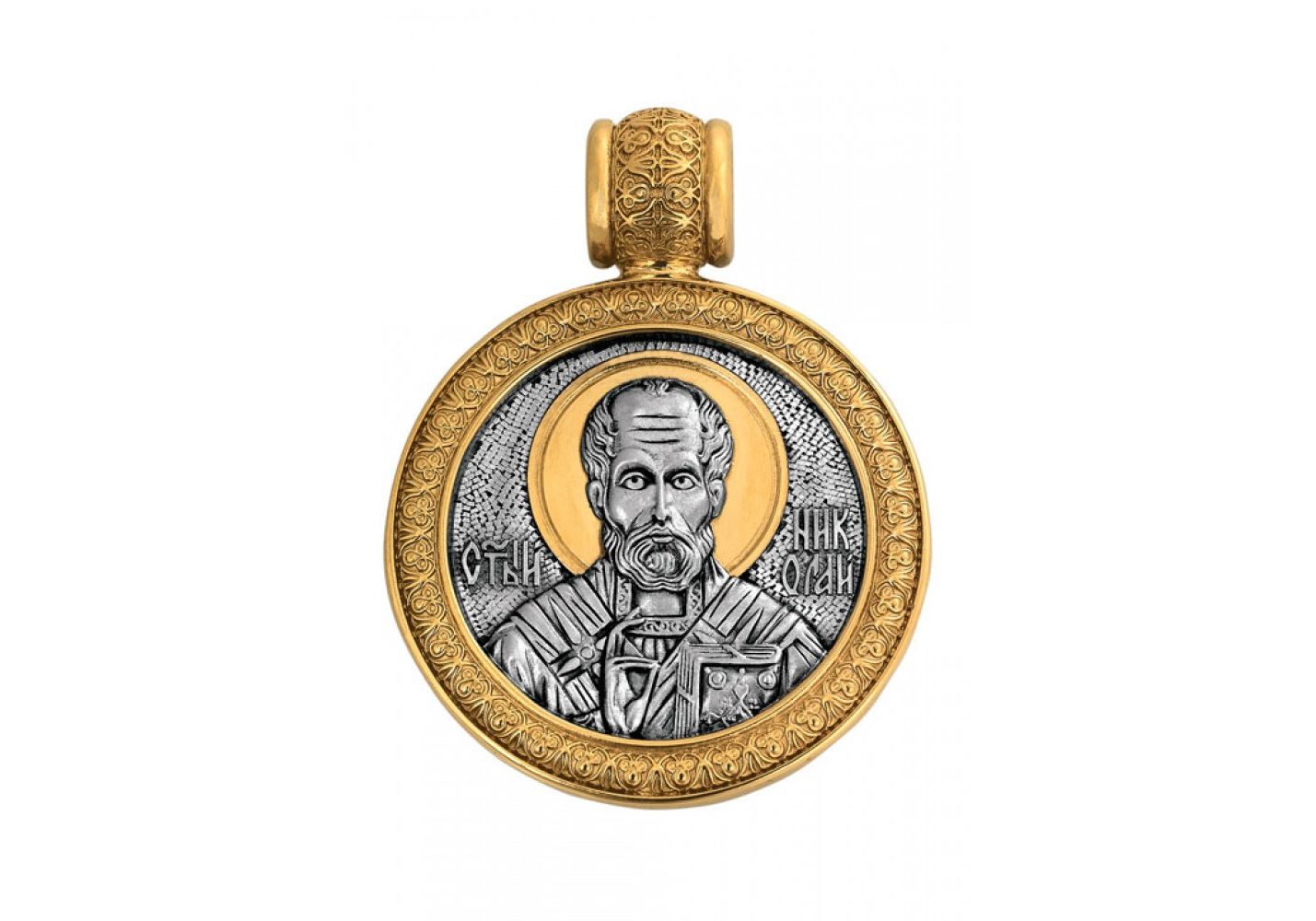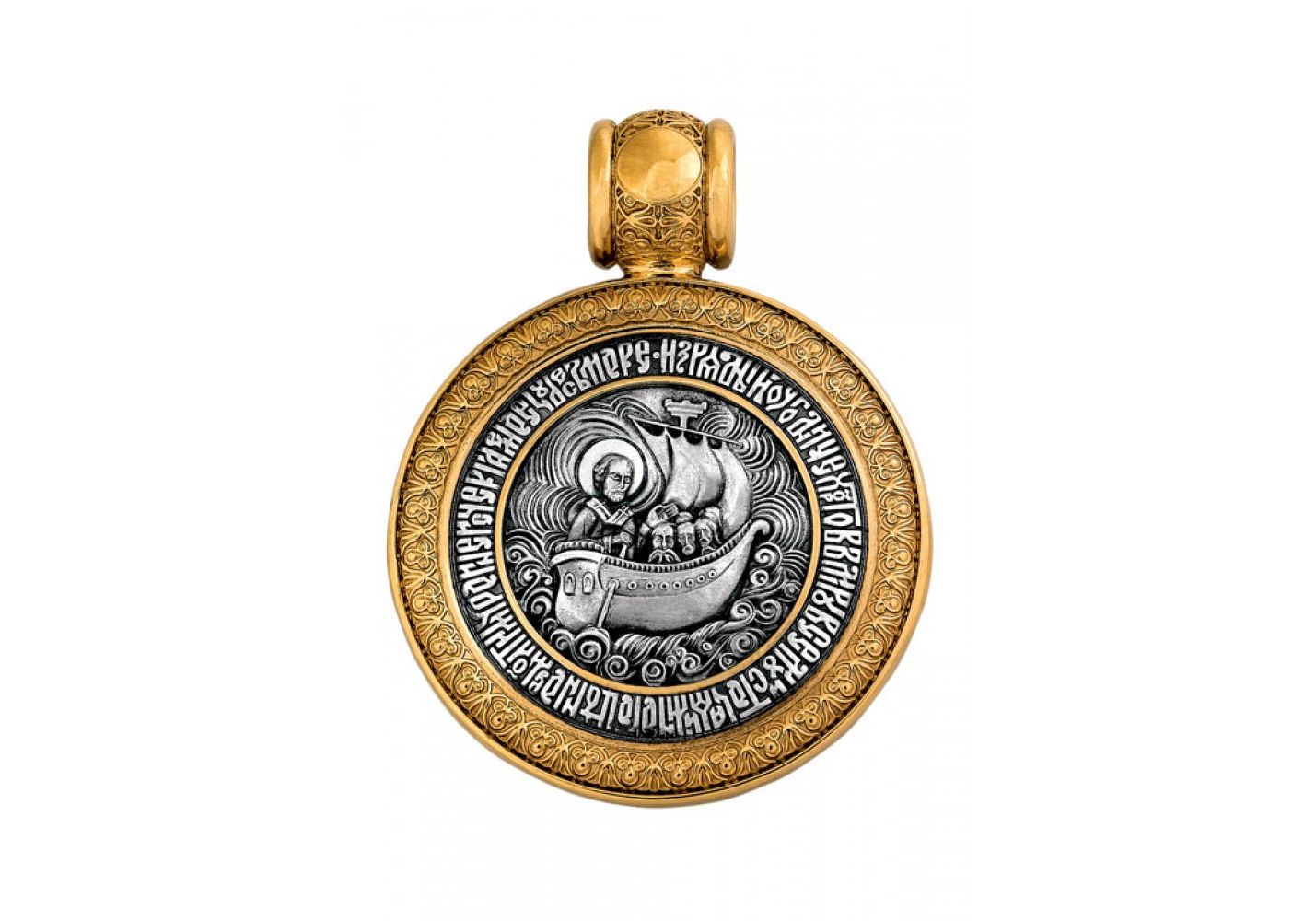St. Nicholas the Wonderworker and Three Merchants 102.082
225.95 $
Product description: Miniature relief Casting Gilding Niello Handwork
Metal type: Silver 925, Gold plated 999
Brand: Akimov Jewerly
Average weight: 17.00 gramm
Sizes: 3,8 * 2,8 * 0,3 mm
The icon obverse shows the icon of St. Nicholas the Wonderworker, the reverse having the wonder of saving of three merchants who were ransacked by the sailors and thrown into the sea. A prayer is written roundabout. Its words are simple and profoundly symbolic: O fairly good pleasant of Christ, shed holy precious ointment of charity, and inexhaustible sea of wonders to the entire world.
Precious ointment of charity is a symbol of merciful help that St. Nicholas gives everyone who offer up a prayer to him. These words as well express the real wonder that has been being worked at his everlasting rest in the city of Bari, Italy: the relics of St. Nicholas are shedding holy ointment that heals sick people. Inexhaustible sea of wonders is the symbol of those innumerable miracles that are made by the prayer to St. Nicholas.
St. Nicholas was born in Patara of Lycia in Asia Minor about the middle of the 3d century. In his adult years he became a presbyter in his native town, later on being the bishop of all the Lycia.
During the years of pastoral ministry the holy Hierarch became famous for many wonders and deeds of mercy. He is honoured as healer, as travelers’ patron, and as defender of offended, persecuted and destitute. He is asked for help in commerce and studies, for resolution of disputes and for making rulers wise.
In the “Wonder of Three Merchants” a story is narrated of three merchants who has been dying in the sea and have invoked St. Nicholas for help; and have been rescued miraculously. They were first swallowed by a giant fish like the Prophet Jonas, and then spitted out just on a rock that rose from the deep that took them to the town like a ship. Learning about the sailors’ evil deed the governor of the town punished them, and returned the commodities to the merchants.
This subject was very popular in Novgorod and Pskov among migrators, sailors and merchants who venerated the holy Hierarch as the helper in fair trade, and as sailor’s defender.
St. Nicholas the God-pleaser was worshipped by the coast-dwelling (inhabiting at White Sea and Barents Sea coast) seafarers. That was written in their strict Marine Regulations. An apocryphal legend was included in the Regulations that explained why it is St. Nicholas whom one should have invoked for help during storms or other emergencies. It appears that, when you pray to the Mother of God or the other saints they first bring your prayer to God, and only then sent the God’s mercy back to you. But St. Nicholas is given God’s mercy “in advance”, i.e. all his requests are complied with beforehand, therefore he responses your requests straight away, and is called “quick in help”.
St. Nicholas is commemorated on December 19 (6), and on May 22 (9), the day of his relics transportation.


